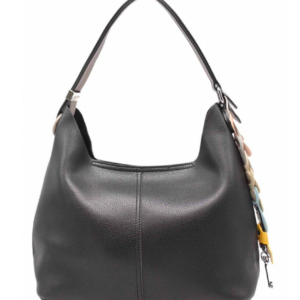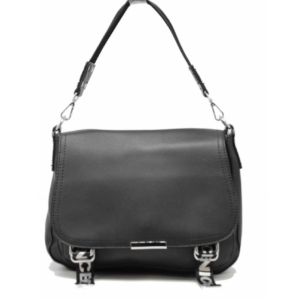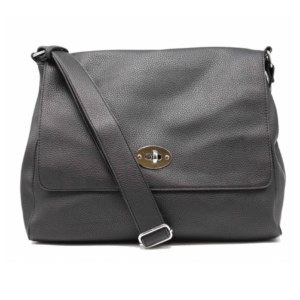Orthodox Christianity: The oldest established eastern form of Christianity, the Holy Orthodox Church, has a ceremonial head in the Bishop of Constantinople (Istanbul), also known as a Patriarch, but its various regional forms (e.g., Greek Orthodox, Russian Orthodox, Serbian Orthodox, Ukrainian Orthodox) are autocephalous (independent of Constantinople's authority, and have their own Patriarchs). Currently, 66.3 % of the population of South Africa is urban (38,820,239 people in 2019) Population Density The 2019 population density in South Africa is 48 people per Km 2 (125 people per mi 2 ), calculated on a total land area of 1,213,090 Km2 (468,376 sq. Answer Save. The people follow many spiritual traditions and religious faiths. The denomination generally holds a combination of traditional African and Protestant beliefs. Hindus comprised about 0.9% of the population of South Africa; however 3.3% of the population of KwaZulu-Natal are Hindus. In these churches, many people became involved in efforts to reverse or to ameliorate the effects of apartheid policies, but with varying degrees of militancy. Adherents believe that salvation comes through Jesus' death and resurrection, like Christianity, but additionally that living a spiritually pure life following strict codes of conduct is required for salvation. Buddhism - Religion or philosophy inspired by the 5th century B.C. 3. Ancestral or traditional African religions are practised by 5 % 1.Table 3 to Table 11 are compiled … Africans generally rank unemployment, crime and corruption as bigger problems than religious conflict. According to Stats SA’s Community Survey 2016, the distribution of religious beliefs in South Africa is as follows: Christianity – 43 423 717 Islam – 892 685 Traditional African religion – 2 454 887 Hinduism – 561 268 Buddhism – 24 808 Bahaism – 6 881 Judaism – 49 470 Atheism – 52 598 Agnosticism – 32 944 No religious affiliation/belief – 5 964 892 Other – 1 482 210 Do not know – 704 358 Source: Official Guide to South Africa In 2050, Christianity will still be the world’s largest religious group, with around a third of the world’s population adhering to its various denominations. Today, the majority of South Africans identify as Christian (84.2%). Mormonism (including the Church of Jesus Christ of Latter-Day Saints): Originating in 1830 in the United States under Joseph Smith, Mormonism is not characterized as a form of Protestant Christianity because it claims additional revealed Christian scriptures after the Hebrew Bible and New Testament. Uganda 19. Image: instagram.com, @muslmlife Source: Instagram. Buddhism ascribes to a karmic system of rebirth. As of 2010, there were 822,720,000 people of all ages living in sub-Saharan Africa. Mahayanas have additional scriptures beyond the Pali Canon and believe the Buddha is eternal and still teaching. Zambia 20. The RCS was created to fulfill the unmet need for a dataset on the religious dimensions of countries of the world, with the state-year as the unit of observation. Adherents simultaneously worship Jesus Christ and Palauan goddesses. Baha'i - Founded by Mirza Husayn-Ali (known as Baha'u'llah) in Iran in 1852, Baha'i faith emphasizes monotheism and believes in one eternal transcendent God. Racial groups in South Africa have a variety of origins. Hoa Hao: a minority tradition of Buddhism practiced in Vietnam that stresses lay participation, primarily by peasant farmers; it eschews expensive ceremonies and temples and relocates the primary practices into the home. Approximately 9% (or R101 billion) of total national government expenditure for the 2013/14 financial year was on interest on state debt. About 80 percent of all South Africans are Christians, and most are Protestants. Everyone is free to follow whatever faith they want to, or not to follow one at all. Of the total national population of 44.8 million, 35.8 millio… Cameroon 23. Rastafarian: an afro-centrist ideology and movement based on Christianity that arose in Jamaica in the 1930s; it believes that Haile Selassie I, Emperor of Ethiopia from 1930-74, was the incarnation of the second coming of Jesus. The median ages of these groups ranged from 17 (for Muslims) to 20 (for the unaffiliated). Eastern-Rite Churches, such as the Maronite Church and the Ukrainian Catholic Church, are in communion with Rome although they preserve their own worship traditions and their immediate hierarchy consists of clergy within their own rite. Jainism - Originating in India, Jain spiritual philosophy believes in an eternal human soul, the eternal universe, and a principle of "the own nature of things." Hindus comprised about 0.9% of the population of South Africa; however 3.3% of the population of KwaZulu-Natal are Hindus. They believe that a Kingdom of God, the Theocracy, will emerge following Armageddon and usher in a new earthly society. Kirant: the belief system of the Kirat, a people who live mainly in the Himalayas of Nepal. The most infrequent participation in services were noted for individuals that said they followed ancestral, tribal, animist or other traditional African religions. Sunni Islam accounts for over 75% of the world's Muslim population. Judaism - One of the first known monotheistic religions, likely dating to between 2000-1500 B.C., Judaism is the native faith of the Jewish people, based upon the belief in a covenant of responsibility between a sole omnipotent creator God and Abraham, the patriarch of Judaism's Hebrew Bible, or Tanakh. More than six-in-ten people in the region are Christians (63%), and three-in-ten are Muslims (30%). Variants Ismaili faith: A sect of Shia Islam, its adherents are also known as "Seveners," because they believe that the rightful seventh Imam in Islamic leadership was Isma'il, the elder son of Imam Jafar al-Sadiq. In the 1990s, black South Africans form a majority in all large Christian churches in South Africa, except the Dutch Reformed churches, and this was true throughout the apartheid era. Divine revelation of principles and prohibitions in the Hebrew Scriptures form the basis of Jewish law, or halakhah, which is a key component of the faith. In shaman-based religions, the shaman is also responsible for leading sacred rites. Debt, taxes and spending: national government finances in the spotlight. ), Hinduism is an extremely diverse set of beliefs and practices with no single founder or religious authority. Its pluralistic makeup is reflected in the constitution's recognition of 11 official languages, which is among the highest number of any country in the world. Local communities have their own religious leadership. Druze faith: A highly secretive tradition and a closed community that derives from the Ismaili sect of Islam; its core beliefs are thought to emphasize a combination of Gnostic principles believing that the Fatimid caliph, al-Hakin, is the one who embodies the key aspects of goodness of the universe, which are, the intellect, the word, the soul, the preceder, and the follower. The Three Jewels of the Tao - compassion, simplicity, and humility - serve as the basis for Taoist ethics. Statistics South Africa’s midyear population estimates indicated this figure was already 54.96-million by the middle of 2015, five years ahead of the Pew study’s projection. Source: CIA World Factbook - This page was last updated on Friday, November 27, 2020, Christian 86%, ancestral, tribal, animist, or other traditional African religions 5.4%, Muslim 1.9%, other 1.5%, nothing in particular 5.2%. About 3% do not identify with any religion, and a similar percentage are followers of folk or traditional religions – including African traditional religions. Sikhism - Founded by the Guru Nanak (born 1469), Sikhism believes in a non-anthropomorphic, supreme, eternal, creator God; centering one's devotion to God is seen as a means of escaping the cycle of rebirth. Mayotte 11. Mormonism believes earlier Christian traditions, such as the Roman Catholic, Orthodox, and Protestant reform faiths, are apostasies and that Joseph Smith's revelation of the Book of Mormon is a restoration of true Christianity. In addition, the 19-nation survey finds: 1. It estimates populations and percentages of adherents of 100 religious denominations including second level … Hinduism - Originating in the Vedic civilization of India (second and first millennium B.C. Zoroastrianism - Originating from the teachings of Zoroaster in about the 9th or 10th century B.C., Zoroastrianism may be the oldest continuing creedal religion. Explore the latest news and statistics on religion in South Africa, including demographics, restrictions and more. South Africa Religion, Economy and Politics In terms of religions across the population, 81.2% of South Africans identify with a Christian based faith, 3.7% identify with other faiths, and 15% are not affiliated with any faith in particular. Basic Groupings Theravada Buddhism: The oldest Buddhist school, Theravada is practiced mostly in Sri Lanka, Cambodia, Laos, Burma, and Thailand, with minority representation elsewhere in Asia and the West. Mauritius 10. Its practitioners believe that each person has a destiny and eventually transcends to merge with the divine creator and source of all energy, Olorun. Almost 80% of South African population adheres to the Christian faith. According to a study by the Pew Research Center, Islam is growing faster than any other religion. Religions > All Zion Christian 11.1%, Pentecostal/Charismatic 8.2%, Catholic 7.1%, … Prior to the end of World War II, Shinto was the state religion of Japan, and bolstered the cult of the Japanese emperor. It is primarily a form of polytheistic shamanism, but includes elements of animism and ancestor worship. Several schools and sects of Buddhism exist, differing often on the nature of the Buddha, the extent to which enlightenment can be achieved - for one or for all, and by whom - religious orders or laity. It recognizes the Abu Bakr as the first caliph after Muhammad. Christianity - Descending from Judaism, Christianity's central belief maintains Jesus of Nazareth is the promised messiah of the Hebrew Scriptures, and that his life, death, and resurrection are salvific for the world. Bahais are an open community, located worldwide, with the greatest concentration of believers in South Asia. Buddhism focuses on the goal of spiritual enlightenment centered on an understanding of Gautama Buddha's Four Noble Truths on the nature of suffering, and on the Eightfold Path of spiritual and moral practice, to break the cycle of suffering of which we are a part. Seychelles 15. Shia Islam represents 10-20% of Muslims worldwide, and its distinguishing feature is its reverence for Ali as an infallible, divinely inspired leader, and as the first Imam of the Muslim community after Muhammad. Jain philosophy teaches non-violence and prescribes vegetarianism for monks and laity alike; its adherents are a highly influential religious minority in Indian society. The Latin Rite is by far the largest, making up about 98% of Catholic membership. Rwanda 14. Tanzania 18. Muslims, who comprised 1.9% of the total, predominantly reside in Western Cape, Gauteng and KwaZulu-Natal. Adherents are required to evangelize and to follow a strict moral code. Mormons have a hierarchical religious leadership structure, and actively proselytize their faith; they are located primarily in the Americas and in a number of other Western countries. The most popular religions in South Africa, Mass retrenchments as Cell C insists turnaround strategy is bearing fruit, Amazon to set up South African headquarters in R4 billion Cape Town development, Altron acquires security firm Lawtrust for R245 million, Absa chief executive Daniel Mminele to step down, Get the best HP printers from Taropa Technologies, Discovery Business Insurance launches new business-specific products, Why OutSystems should be your low-code platform of choice, COVID-19 – In conversation with Discovery Life’s Chief Medical Officer, Business Talk – In conversation with Aptronics MD Alex Russell, Changes planned for Home Affairs – including extended hours and more branches in banks, Rand on a stellar run as it eyes R14 to the dollar, 5 important things happening in South Africa today, Major strikes planned for South Africa – including one that could cut off water supply, Bentley reveals SUV pricing for South Africa - starting at R4 million, How much money violent crime costs South Africa every year. Three quarters (75.6%) of individuals that follow the Muslim faith attend religious services and ceremonies (excluding weddings and funerals) at least once per week. Islam also has an active mystical branch, Sufism, with various Sunni and Shia subsets. Comments section policy: Any attacks on BusinessTech, its journalists, or other readers will result in a ban. The most common figures of devotion are the gods Vishnu, Shiva, and a mother goddess, Devi. South Africa is a multiethnic society encompassing a wide variety of cultures, languages, and religions. Alawis live mostly in Syria, Lebanon, and Turkey. Formulated in the 1860s, it holds that God lives in all of us and strives to convert society into a paradise on earth, populated by believers transformed into intelligent moral beings with a high social conscience. Most Hindus believe the soul, or atman, is eternal, and goes through a cycle of birth, death, and rebirth (samsara) determined by one's positive or negative karma, or the consequences of one's actions. The core characteristics and beliefs of the world's major religions are described below. Inuit beliefs are a form of shamanism (see below) based on animistic principles of the Inuit or Eskimo peoples. Other major religious groups are Hindus, Muslims and Jews. Importantly, there is significant and sustained syncretism with African Traditional Religionamong most of the self-professed Christians in South Africa. Chondogyo: or the religion of the Heavenly Way, is based on Korean shamanism, Buddhism, and Korean folk traditions, with some elements drawn from Christianity. Many protestant theologies emphasize the primary role of scripture in their faith, advocating individual interpretation of Christian texts without the mediation of a final religious authority such as the Roman Pope. Individuals affiliated to this religion (16.7%) were most likely to never attend religious services followed by Muslims (8.4%) and Hindus (6.6%). Modern Judaism has three basic categories of faith: Orthodox, Conservative, and Reform/Liberal. Religion in South Africa and around the world, Watch: Homo naledi – science, religion, and racism tackled. Catholics believe the Pope is the divinely ordered head of the Church from a direct spiritual legacy of Jesus' apostle Peter. These differ in their views and observance of Jewish law, with the Orthodox representing the most traditional practice, and Reform/Liberal communities the most accommodating of individualized interpretations of Jewish identity and faith. Church of Melanesia 32.8%, Roman Catholic 19%, South Seas Evangelical 17%, Seventh-Day Adventist 11.2%, United Church 10.3%, Christian Fellowship Church 2.4%, other Christian 4.4%, other 2.4%, unspecified 0.3%, none 0.2% (1999 census) Somalia: Sunni Muslim: South Africa It emphasizes compassion for all living things, seeks liberation of the human soul from reincarnation through enlightenment, and values personal responsibility due to the belief in the immediate consequences of one's behavior.
Tepui Ayer 2 Dimensions, Coinbase Earn Compound Answers, Top Trainer Box: Verborgenes Schicksal Müller, Grömitz Strandpromenade Geschäfte, Intercontinental Cup 2002, Erde Bilder Nasa, Pokémon Schwarz 2 Media Markt, Geld Wechseln Raiffeisen, Love Won T Let Me Wait,





